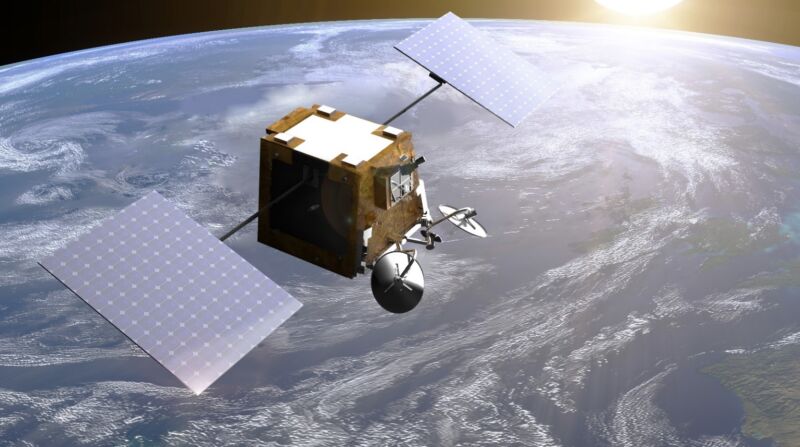
OneWeb has emerged from Chapter 11 bankruptcy under new ownership and says it will begin launching more broadband satellites next month. Similar to SpaceX Starlink, OneWeb is building a network of low-Earth-orbit (LEO) satellites that can provide high-speed broadband with much lower latencies than traditional geostationary satellites.
After a launch in December, “launches will continue throughout 2021 and 2022, and OneWeb is now on track to begin commercial connectivity services to the UK and the Arctic region in late 2021 and will expand to delivering global services in 2022,” OneWeb said in an announcement Friday.
In March this year, OneWeb filed for bankruptcy and reportedly laid off most of its staff. In July, OneWeb agreed to sell the business to a consortium including the UK government and Bharti Global Limited for $1 billion. In the Friday announcement, OneWeb said it has secured “all relevant regulatory approvals” needed to exit bankruptcy.
“Together with our UK Government partner, we recognised that OneWeb has valuable global spectrum with priority rights, and we benefit from $3.3 billion invested to date and from the satellites already in orbit, securing our usage rights,” Bharti founder and Chairman Sunil Bharti Mittal said.
Launch scheduled for December 17
OneWeb previously launched 74 satellites into low Earth orbits and said it plans a launch of 36 more satellites on December 17, 2020. The Friday announcement also said OneWeb plans “a constellation of 650 LEO satellites,” but that could be just the beginning. OneWeb in August secured US approval for 1,280 satellites in medium Earth orbits, bringing its total authorization to 2,000 satellites.
OneWeb will be playing catch-up against SpaceX, which has launched about 800 satellites, has permission to launch nearly 12,000, and it is already providing Internet service to US customers in a beta. SpaceX and OneWeb are both seeking US permission to launch tens of thousands of additional satellites.
There’s also competition from Amazon’s Project Kuiper, which has US approval to launch 3,236 low-Earth-orbit satellites and a $10 billion investment plan.
https://arstechnica.com/?p=1725133

